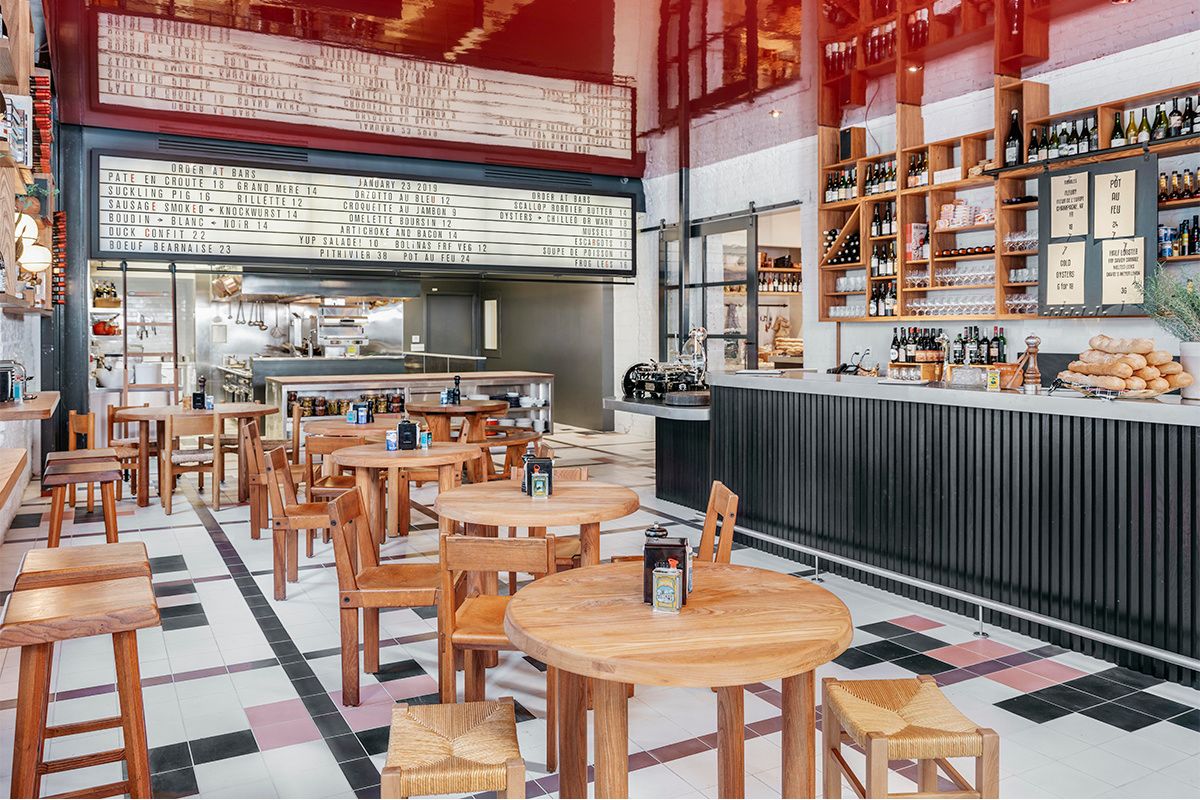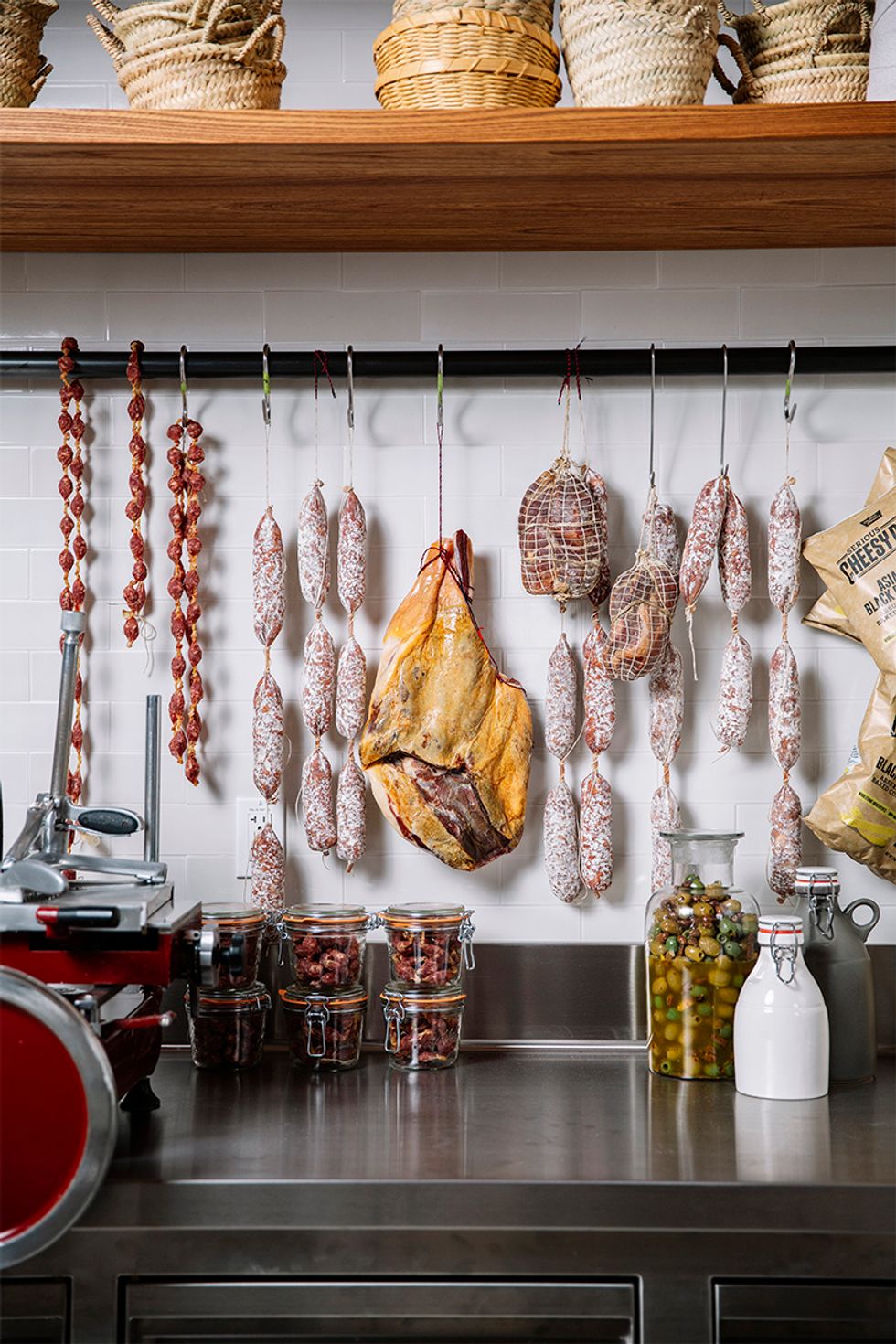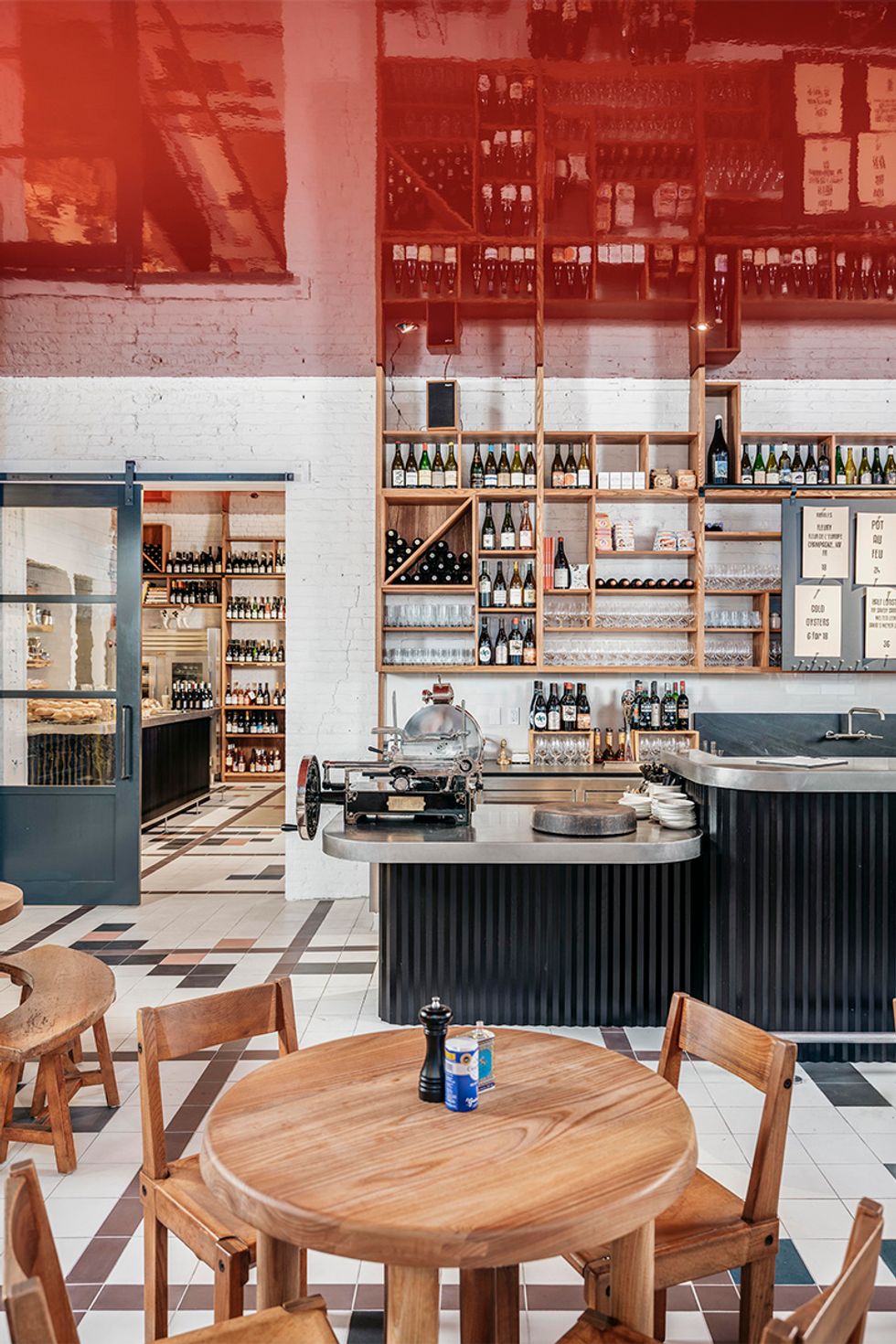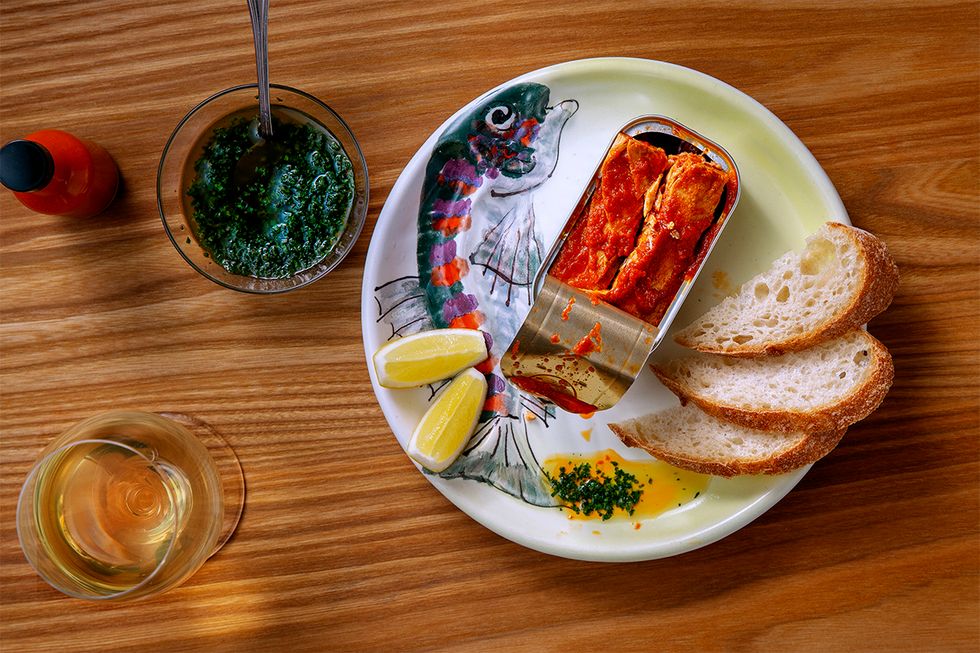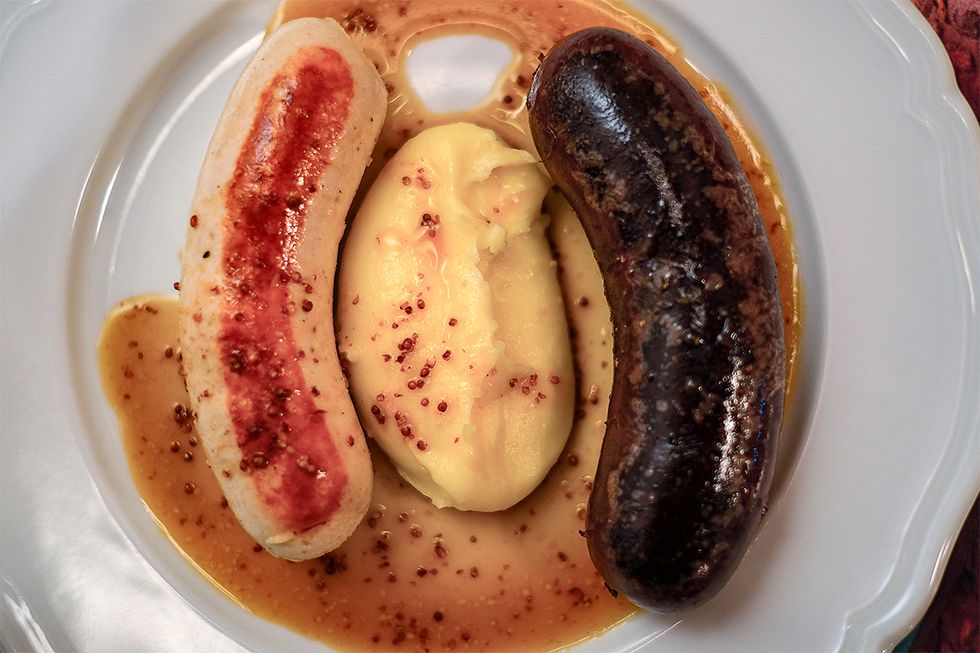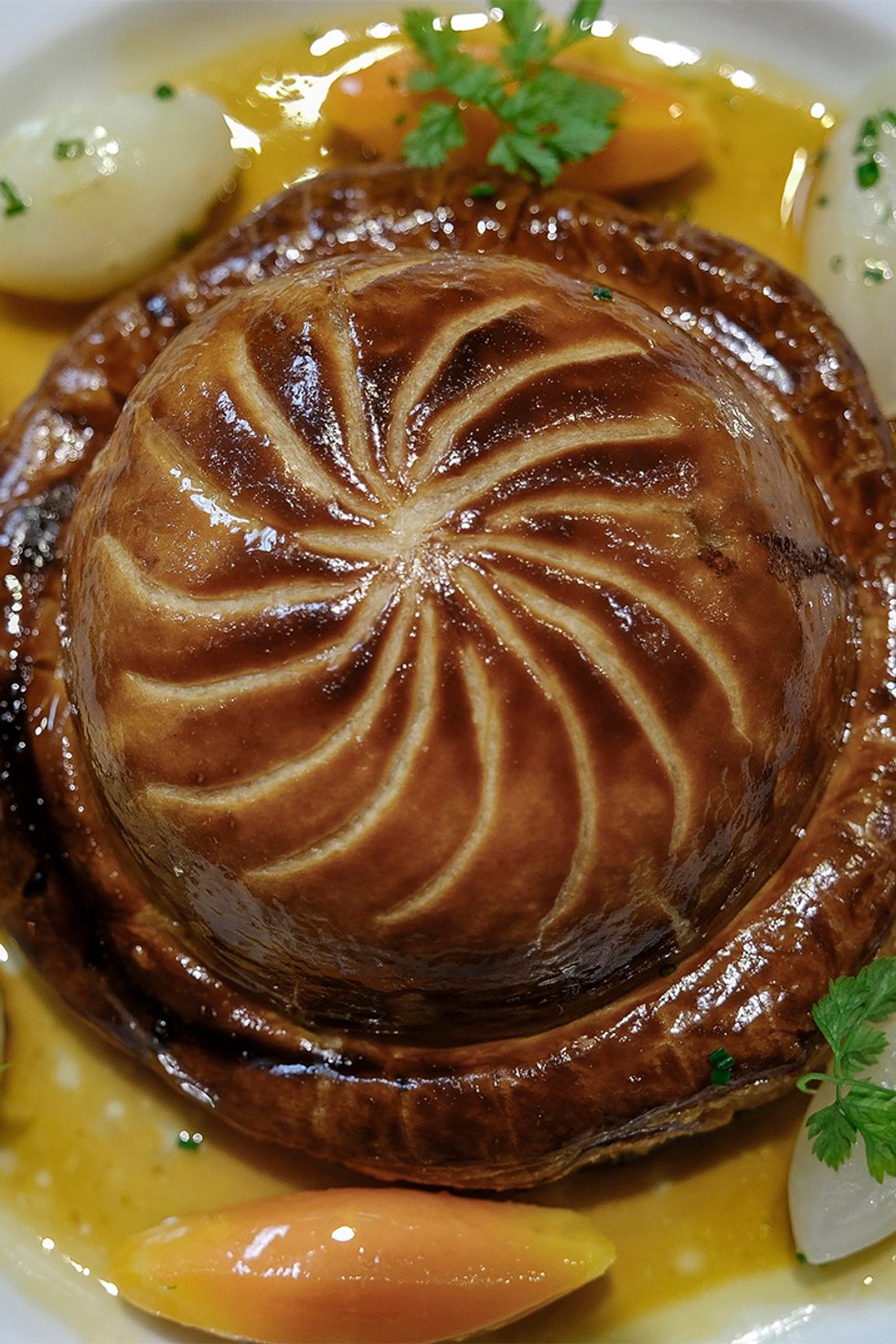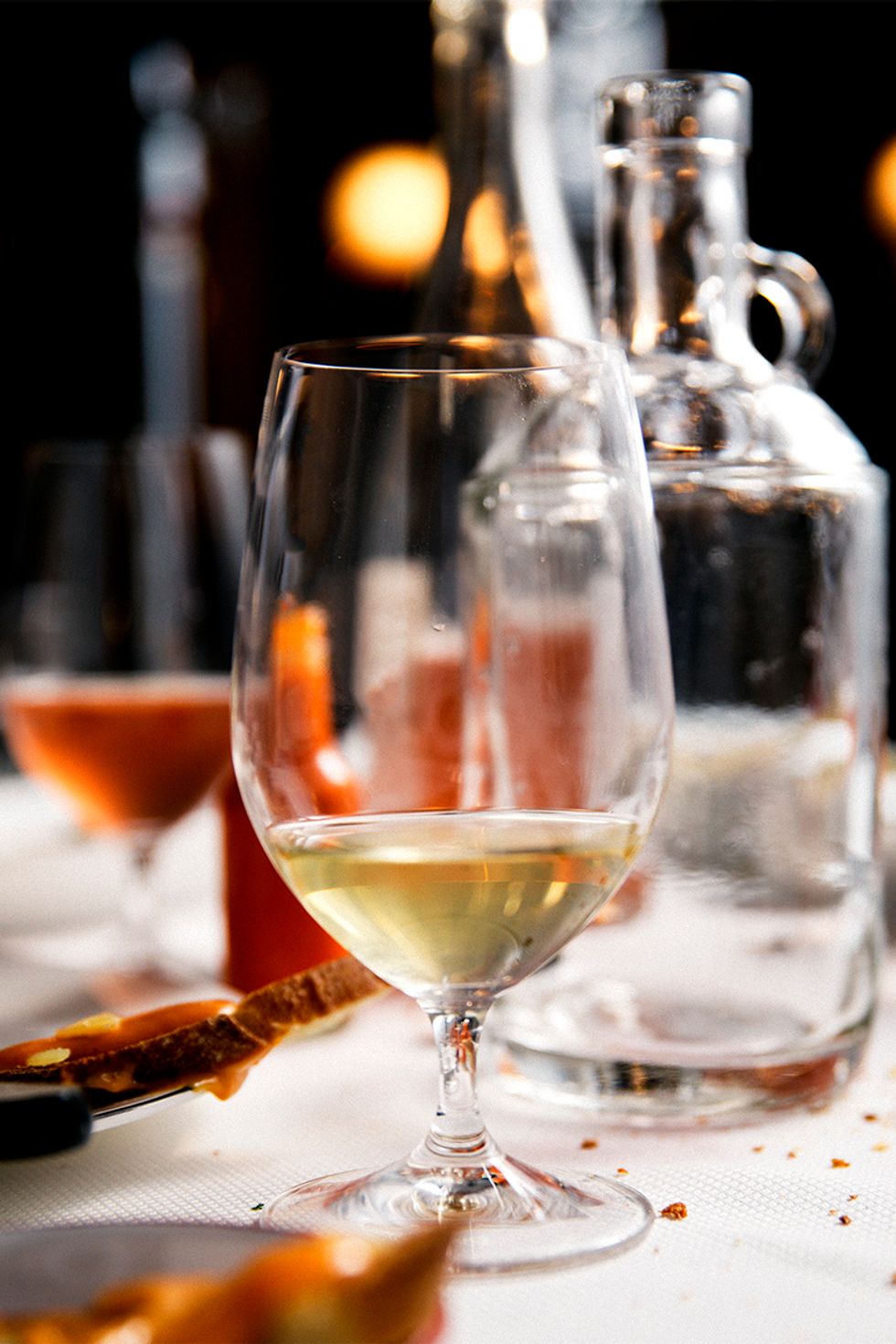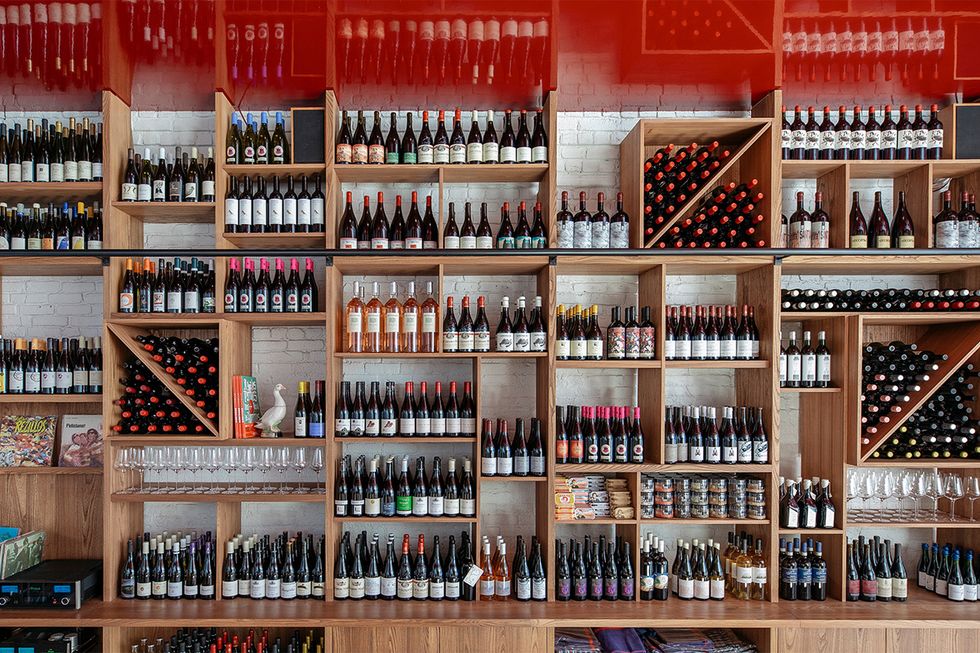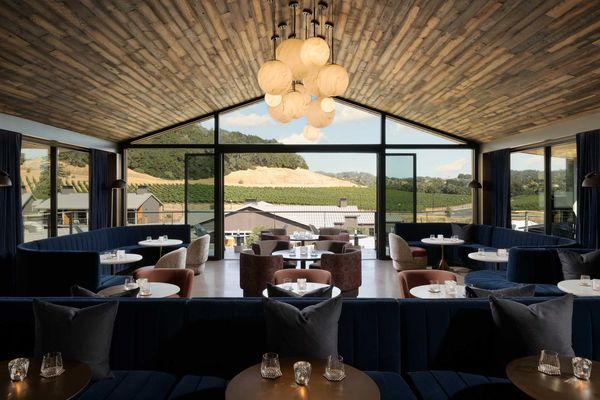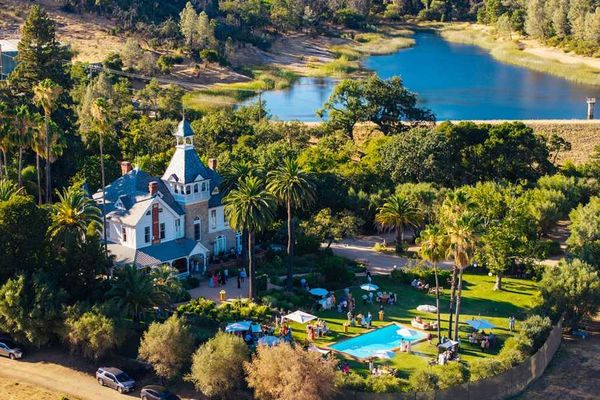In early Spring I spent a few days in London, and the better part of my last evening there eating and drinking, or the other way round, at a place called 40 Maltby Street, a wine bar situated in a railway arch in Bermondsey, in the southeastern part of the city.
The food was beautifully prepared and served swiftly and without fanfare by the bartenders and the cooks who were otherwise so busy that guests were left to enjoy the evening at their own pace, which is precisely how I like it.
The wines, meanwhile, were deliciously intriguing, all so-called "natural" wines made by winemakers who farm organically or biodynamically, and use wild, indigenous yeasts for fermentation. If a particular wine strikes your fancy, you can buy a bottle to go, a side benefit of the fact that the wine importers who own the restaurant use a part of the space as their warehouse.
Afterward, on the late night train back to Kensington, I found myself brooding that there wasn't anything like this in San Francisco, until I caught myself, because in fact there is.

Verjus, which opened in mid-January on Washington Street in Jackson Square, is a collaboration between the chef Michael Tusk and his wife, Lindsay, who own Quince and Cotogna, and Matt Cirne, a Certified Sommelier who last fall became the restaurants' beverage director after a five-year run as Quince's general manager.
The idea for Verjus (which takes its name from an ancient, vinegar-like ingredient made from unripe grapes) had been evolving for the past few years, inspired by the Tusks' and Cirne's travels in Europe, and by their exploration of wine bars, particularly those dealing in natural wines—places like L'Avant Comptoir in Paris, Enoiteca Mascareta in Venice, and Barcelona's Bar Brutal.
Like those of the wine bars that inspired it, the business model at Verjus is somewhat free-form. Tuesday through Friday, it's open from 11:30 in the morning till late evening; Saturdays and Mondays for the dinner shift only. During those hours, you can pop in for anything from a glass of wine and a little bite, to a full-blown feast—served by bartenders, cooks, and just a handful of waiters—and if the mood strikes you, buy some wines to go, from a selection of 350 to 400 bottles, hand-picked by Cirne.
The upshot of the latter is that whenever I visit Verjus, I leave laden like a pack animal with wines from winegrowers I'd never heard of, working in appellations I didn't know existed, whose deliciously unfamiliar bouquets and flavors and correspondingly short shelf-lives have given rise to something of an addictive cycle. This speaks to a broader point, though, which is that when it comes to natural wine, as with any wine, the nature of one's experience depends to a great extent on the curators of that experience. Lacking much direction, my own introduction to natural wine was somewhat rocky, owing to a number of early encounters with bottles from winegrowers who seemed more adept at marketing their personalities than at sanitizing their equipment, the resulting skepticism no doubt having delayed my appreciation of the genre for the better part of a decade.
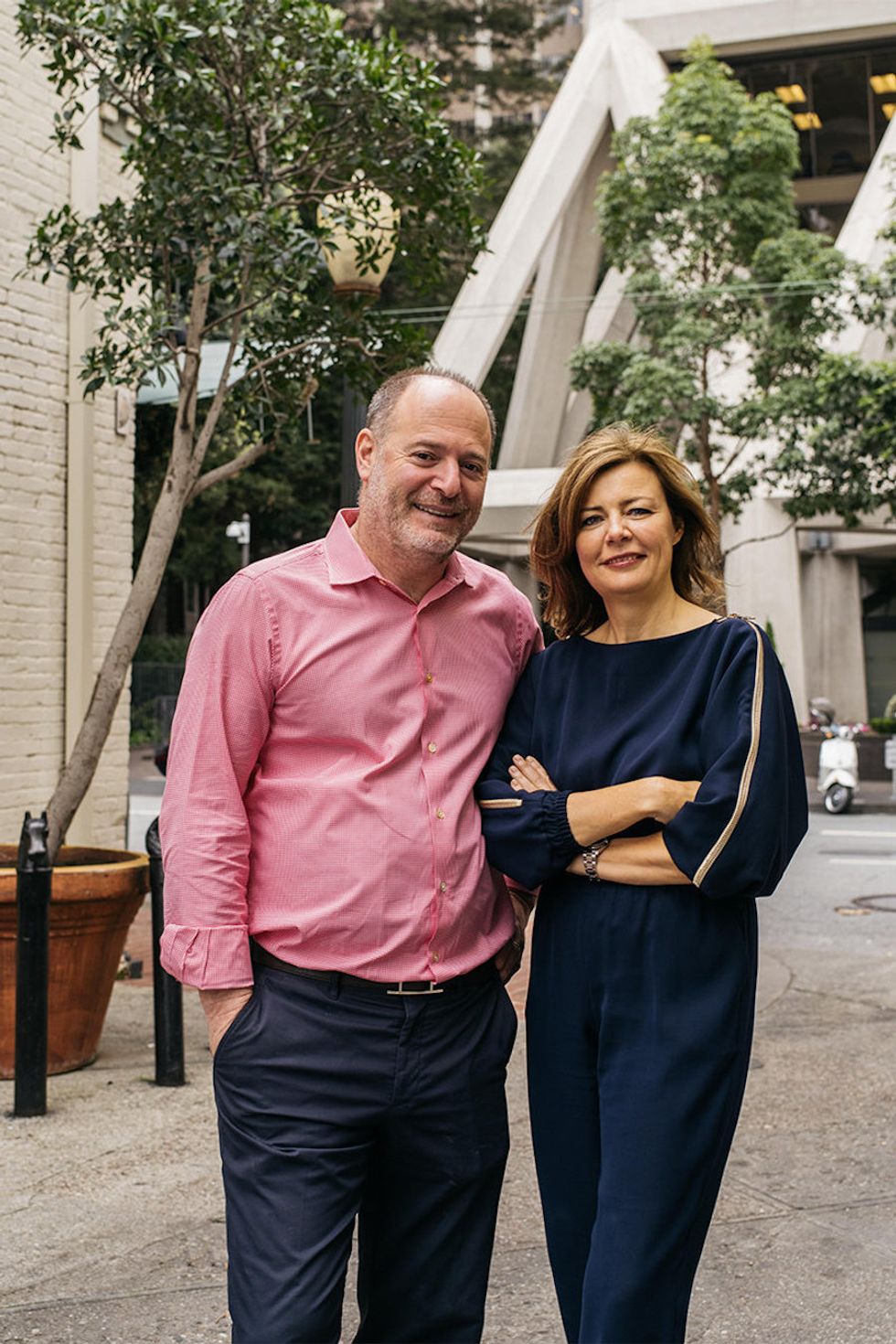
On a Friday afternoon in mid-May, as my wife made her way across town from the Mission, I took a seat at a communal table, and while admiring the mysterious lustre of Verjus' red lacquer ceiling—which, like all of the interior design, is the work of Lindsay Tusk—sipped a 2016 Peira Levada, a blend of vermentino and roussanne from Sauta Roc, a winery in Languedoc that is making its fourth vintage this year. Bright gold, with a leggy viscosity and a tangy, mineral aroma, its flavor began on a salty note before opening up to something resembling the slight sourness of not-quite-ripe pineapple.
My wife's trip was taking a while. I ordered some bread—baguette, from Quince, excellent—and a 2017 Patapon Blanc, a spontaneously-fermented chenin blanc from Domaine Le Briseau, a winery in the Loire Valley founded by Natalie Gaubicher and the late Christian Chaussard. Slightly hazy pale yellow gold, its pear and yeasty bread bouquet presaged a flavor of pear-infused sour beer. While I'm not really a fan of sour beer, the idea of a wine that mimicked it was somehow compelling. Would I drink a bottle of Patapon Blanc on my own? Likely, not. But by the glass, it's an instructive vantage from which to consider the point made in the 1950s by the natural wine movement's godfather, Jules Chauvet, that indigenous yeasts are just as vital an element of terroir as the soil, the vine, the climate and the winegrower.
It's something of a trope, celebrating the end of a work week with a well-chilled rosé, but Verjus gives the ritual a certain spark. When my wife arrived, I followed her lead with a slightly fizzy, or rather sprudelndes rosé from Meinklang, a biodynamic concern in Austria's Burgenland region. Made from 100 percent pinot noir, its bright but not sweet strawberry aroma was matched by a fine strawberry essence on the palate, and a crisp, somewhat vinegary finish likely a result of spontaneous fermentation.
An illuminated marquee above the open kitchen serves as a kind of communal menu, and oysters were headlining as usual. We ordered them. They were small and plump and sweet, and we doused them in mignonette and splashes of Salsa Espinaler, a wonderfully piquant condiment made in Barcelona. Then a burrata, luxuriously luscious and garnished with oh-so-tender baby fava beans which had been cooked along with their leaves on a plancha, then dressed with thyme oil and lemon juice, all finished with a scattering of freshly cracked pepper and fleur de sel.
Although Michael Tusk frequently drops by—and easily enough as Quince and Cotogna are just two blocks away—Verjus' kitchen is the domain of chef de cuisine David Meyer, who worked previously at The French Laundry and The Progress, among others. Meyer has a deft touch, his understated presentations allowing taste to speak for itself, as in the superb, house-made boudin blanc I enjoyed on my first visit back in February, and a gratin de coquillettes au jambon, one of the most scrumptious interpretations of macaroni and cheese you're likely to encounter this side of the Atlantic.
Sticking with pinot noir, but shifting from rosé to red, I ordered the 2016 Liaison from Enderle & Moll, a two-man operation in the Ortenau region of Baden, in eastern Germany. Light bodied, strikingly aromatic, with rivers of dark red fruit spiced with fennel and anise, it took real self-discipline to make it last as long as an intensely yummy morel ragout with ramps, garlic scapes and fava beans, topped with an egg yolk gently poached then slowly cooked in oil to an unctuous perfection.
The finale: a classic French omelette with Boursin and stewed yellow onions, cooked to a supple creaminess, brushed with melted butter, finished with chives and sea salt, and delivered with a friendly brevity that reminded me of the service at my new favorite London hideout, as well as two similar venues, Al Vino Al Vino in Rome, and Ca' de Vèn in Ravenna—all well worth a visit if you happen to be in the neighborhood. Although nowadays, it seems, a San Franciscan needn't go quite that far.
// Verjus, 528 Washington St. (Jackson Square), verjuscave.com



